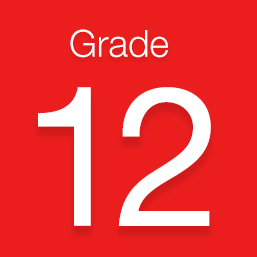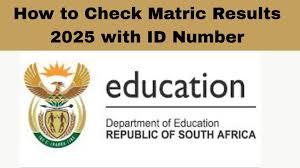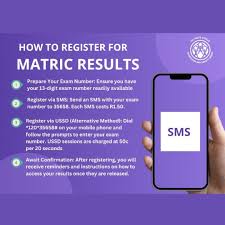As the final term of 2024 draws to a close, thousands of South African Grade 12 learners are gearing up for one of the most pivotal moments of their academic journey—the National Senior Certificate (NSC) final exams. For students taking Mathematical Literacy, the November exam is more than a test of schoolwork: it’s a measure of their readiness for adult life, financial independence, and civic participation.
What distinguishes the best-prepared learners, however, often isn’t just diligence throughout the year, but how they prepare in the crucial final term. And at the heart of the best preparation is one indispensable resource: Grade 12 Mathematical Literacy Past Papers.
Below, you’ll not only find direct links to the November 2024 Term 4 question papers, addenda, and memos in both English and Afrikaans, but also a practical and motivational guide to using these tools to transform your learning journey—and to foster a life-long relationship with numbers.
Direct Download Links: 2024 Maths Literacy Grade 12 questions and answers pdf Download
PAPER 1:
- Addendum (Afrikaans): Download PDF
- Addendum (English): Download PDF
- Exam Paper (Afrikaans): Download PDF
- Exam Paper (English): Download PDF
- Marking Guidelines – Memo (Afrikaans & English): Download PDF
PAPER 2:
- Addendum (Afrikaans): Download PDF
- Addendum (English): Download PDF
- Exam Paper (Afrikaans): Download PDF
- Marking Guidelines – Memo (Afrikaans & English): Download PDF
Why Past Papers Are More Than Just Revision
Many learners view past papers as just practice, but their value goes much deeper—particularly in Mathematical Literacy.
1. Real-Life Rehearsal
Mathematical Literacy is unique: every question is grounded in the real world. Past papers let you rehearse situations you’ll genuinely face—reading data from charts, budgeting, public transport planning, understanding bank statements, and more. By working on these papers, you simulate adult decision-making in a safe, educational setting.
2. Demystifying the Exam
Knowing what to expect dissolves anxiety. By seeing how sections are laid out, testing your timing, and reviewing how marks are awarded, you build confidence. You learn to maximize your strengths—whether it’s calculations, interpreting graphs, or writing clear, logical explanations.
3. Identifying Weak Spots—and Fixing Them
By marking your attempts with official memos, you pinpoint your errors: maybe you lose marks for not showing enough working out, misreading a unit, or missing a step in explanations. This self-awareness is the start of real improvement.
4. Language Flexibility
With Afrikaans and English versions available, learners from any background can master terminology in both languages—an important asset in multilingual South Africa, both at university and in the workplace.
Effective Strategies for Past Paper Practice
1. Set the Scene Like an Exam: Sit in a quiet place, set a timer (2 hours for Paper 1, 3 hours for Paper 2), and print or download the addenda before you start.
2. Print the Addenda: Graphs, tables, and scenarios in the addenda are essential for accurate answers. Treat them as you would in the real exam.
3. Use Both Language Versions: Switch between Afrikaans and English if you can—that way you’ll never get stuck on a translation issue in the final.
4. Mark With Intent: Don’t just check marks; actively compare your reasoning with the memo’s model answers. Where did your method differ? Did you lose marks for lack of explanation or unit errors? Correction is learning.
5. Keep an Error Log: For every misconception or repeated error (like forgetting to round to two decimal places), log it. Review this list before your next practice session.
6. Understand, Don’t Memorize: Recognize that every scenario in Mathematical Literacy is unique—so understanding the ‘why’ is as important as the ‘how’.
The Human Nature of Mathematical Literacy
Mathematical Literacy empowers you to make wise decisions in a world filled with numbers. It’s about people—how we shop, travel, save, vote, and communicate. It’s about being able to question, to analyze, and to participate fully in society.
With every past paper, you’re not just practicing for an exam; you’re preparing for:
- Budgeting as a young adult
- Deciphering cellphone data plans
- Planning community events
- Questioning a politician’s statistics
In a country working towards empowerment and equality, every student who can confidently interpret and use maths is a leader—whether you pursue business, healthcare, education, or entrepreneurial dreams.
Advice to Learners and Families
Learner: You hold the power to turn mistakes into strengths. Think of each paper as a stepping stone—not just to your matric certificate, but to independence.
Parent or Guardian: Encourage your child to talk through tough questions; often, verbalizing a problem reveals the solution. Sit together and look over graphs or financial questions as a team.
Educator: Structure revision classes around the analysis of common past paper traps and excellent responses. Link every exam skill to real-world benefits.
Conclusion: The Past Papers, Your Future
The Mathematical Literacy Grade 12 November 2024 Term 4 Past Papers are more than exam drills—they are tools of empowerment. Not every mistake is a setback; it is a chance to grow sharper, more confident, and better prepared for real life.
Download, practice, reflect, and celebrate each small victory—they all add up, not only to a better exam result but to a more capable, independent you.
Ready? Download your 2024 papers:
- Mathematical-Literacy-P1-Nov-2024-Addendum-Afr.pdf
- Mathematical-Literacy-P1-Nov-2024-Addendum-Eng.pdf
- Mathematical-Literacy-P1-Nov-2024-Afr.pdf
- Mathematical-Literacy-P1-Nov-2024-Eng.pdf
- Mathematical-Literacy-P1-Nov-2024-MG-Afr-Eng.pdf
- Mathematical-Literacy-P2-Nov-2024-Addendum-Afr.pdf
- Mathematical-Literacy-P2-Nov-2024-Addendum-Eng.pdf
- Mathematical-Literacy-P2-Nov-2024-Afr.pdf
- Mathematical-Literacy-P2-Nov-2024-MG-Afr-Eng.pdf
Your future is numerical. Make every paper, every mark, and every mistake, count!





